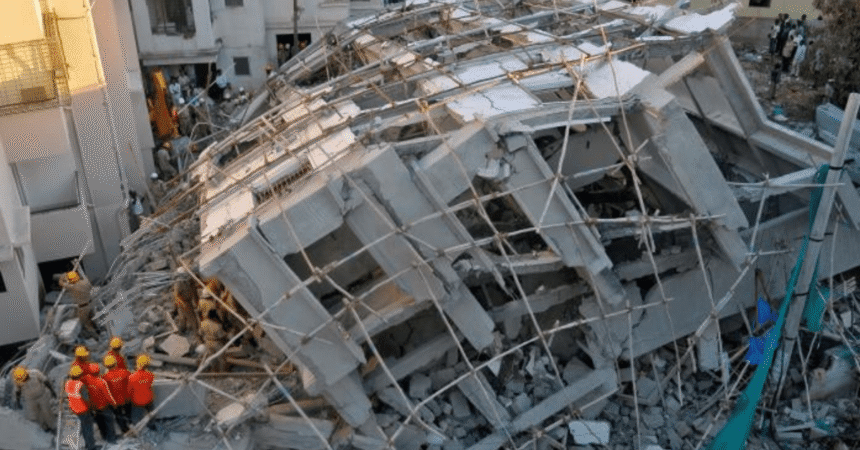The rise of dengue fever in various regions has become a pressing public health concern, necessitating immediate and effective responses from local authorities. In Rawalpindi, the Rawalpindi Development Authority (RDA) has initiated a vigorous campaign to combat this menace by sealing 108 under-construction buildings found in violation of dengue Standard Operating Procedures (SOPs). This decisive action is part of a broader strategy aimed at curtailing the spread of dengue and safeguarding community health.
Context of the Dengue Crisis
Dengue fever, transmitted by the Aedes mosquito, poses significant health risks, especially in urban areas with stagnant water sources where these mosquitoes breed. Pakistan has faced periodic outbreaks of dengue, prompting government agencies to implement strict measures to prevent its spread. The role of construction sites is critical, as they can often serve as breeding grounds for mosquitoes if proper sanitation measures are not enforced.
Given the situation, the RDA, along with the Punjab Health Department, has intensified its efforts to detect and eliminate potential dengue breeding sites. This includes inspecting under-construction buildings where water accumulation is likely to occur.
Operations Conducted by RDA
In a well-coordinated effort, RDA teams, accompanied by health officials, conducted extensive raids in Union Council Chak Jalal Din. This area was specifically targeted due to reported cases of dengue larvae found in several under-construction buildings. Prior to these raids, thorough inspections were conducted by field staff from the health department alongside RDA personnel to assess the presence of dengue larvae.
The spokesperson for RDA reported that these inspections revealed alarming levels of dengue larvae, prompting immediate action. This proactive approach not only aimed to address current threats but also sought to raise awareness among builders and property owners about their responsibilities under the law.
Leadership and Directive Actions
The directive to accelerate these operations came from Rawalpindi Division Commissioner Engineer Aamir Khattak and RDA Director General Kinza Murtaza. Their leadership has been crucial in mobilizing resources and ensuring that the operations are effectively executed. Awais Manzoor Tarar, the RDA Additional Director General, played a pivotal role by issuing explicit instructions to housing schemes regarding anti-dengue measures.
Focus on Housing Schemes
Under Tarar’s guidance, all approved housing schemes have been called upon to implement comprehensive anti-dengue strategies. This includes appointing representatives who can take charge of these efforts, forming teams under a designated focal person responsible for ensuring compliance with SOPs. These teams are expected to coordinate closely with the Assistant Director of Planning at the RDA and provide regular updates on their progress.
Such measures are essential not only for immediate remediation but also for fostering a culture of accountability among builders and developers. By involving housing scheme representatives, the RDA aims to create a system of checks and balances that reinforces compliance with health regulations.
Legal Framework and Consequences
To underscore the seriousness of the situation, Tarar has warned that FIRs will be filed against individuals whose properties are found to harbor dengue larvae. This legal approach serves multiple purposes: it acts as a deterrent for negligence among property owners and emphasizes the urgent need for collective action in the fight against dengue.
The legal ramifications for non-compliance are critical in establishing a framework that supports public health initiatives. By holding individuals accountable, the RDA aims to ensure that preventive measures are not merely recommendations but enforceable laws that protect community health.
Community Involvement and Awareness
In addition to regulatory measures, community involvement is crucial in the battle against dengue. Public health campaigns that educate residents about the dangers of dengue and the importance of eliminating stagnant water sources can enhance the effectiveness of governmental efforts.
Local residents can be empowered to take part in monitoring their surroundings, reporting potential breeding sites, and participating in cleanup activities. This community-driven approach not only fosters a sense of responsibility but also strengthens the overall public health infrastructure.
Long-Term Strategies for Dengue Control
While immediate actions like sealing construction sites are necessary, long-term strategies must also be developed to ensure sustainable control of dengue outbreaks. These strategies should focus on environmental management, public education, and ongoing monitoring and surveillance.
Environmental Management
Addressing the environmental factors contributing to mosquito breeding is vital. This involves not only managing construction sites but also addressing public spaces, residential areas, and other potential breeding grounds.
Local authorities must work with communities to promote practices such as regular cleaning of drainage systems, proper waste disposal, and the elimination of standing water. These actions can significantly reduce the mosquito population and minimize the risk of dengue transmission.
Public Education Campaigns
Ongoing public education campaigns should be instituted to inform residents about dengue transmission, symptoms, and prevention strategies. Schools, community centers, and local organizations can serve as platforms for disseminating information.
Materials such as flyers, social media posts, and community workshops can help raise awareness. Engaging community leaders and influencers can also amplify the message and encourage wider participation in dengue prevention efforts.
Surveillance and Monitoring
Continuous surveillance of mosquito populations and dengue cases is critical in identifying potential outbreaks early. Local health departments should invest in data collection and analysis to track trends in dengue cases, allowing for timely interventions.
Collaboration with research institutions can further enhance these efforts, providing insights into mosquito behavior and the effectiveness of various control measures.
The recent sealing of 108 under-construction buildings in Rawalpindi underscores the urgent need for comprehensive action against dengue fever. Through collaboration between the RDA, health department, and local communities, the city can not only address immediate threats but also lay the groundwork for sustainable dengue control measures.
Ensuring that builders and property owners adhere to health regulations is essential, and legal actions serve to reinforce this necessity. However, the fight against dengue extends beyond regulatory measures; it involves community engagement, environmental stewardship, and sustained public health efforts.
By adopting a holistic approach that combines immediate actions with long-term strategies, Rawalpindi can work towards a healthier, dengue-free environment for its residents.
#DengueAwareness #PublicHealth #Rawalpindi #RDA #HealthSafety #CommunityEngagement #DenguePrevention #UrbanHealth #PakistanHealth







